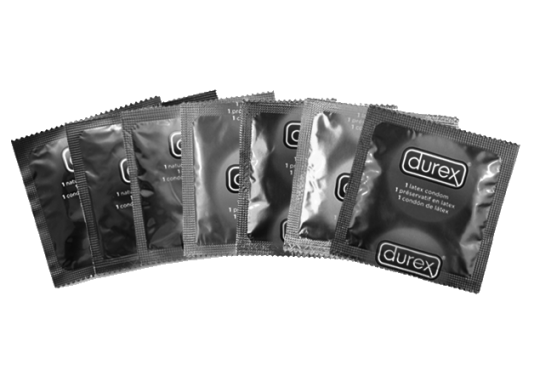Love is sometimes crazy. Sex is sometimes confusing. However, the disjointed hit-or-miss nature of good and bad in such relationships may actually have a common underlying factor at play: oxytocin.
In understanding this neural hormone which has captivated the scientific community in recent decades, we may become more in tune with ourselves, others and our relationships to each other. And have better sex to boot!
Oxytocin is a social hormone released with eye contact, physical touch, social interaction and, as implied, sex. It is a primary regulator of trust, empathy, connection and affection, including those “warm fuzzies” that we all crave.
Though it is produced naturally, synthetic forms are sometimes used to induce labor and to treat post-partum depression, increase intimacy in relationships and even treat symptoms of autism. Sounds all fun and good, right?
Alas, oxytocin is a fickle hormone, a double-edged sword involved in seemingly all aspects of social cognition, which we all know is not pure love and cuddles. Oxytocin can also increase anxiety, distrust, prejudice, anger and fear.
For reasons currently unknown, oxytocin generally appears to make one feel more positive in a positive context but more negative in a negative context. It is involved in directing emotional responses based on environmental stimuli, perhaps so that you can best advance your interests in that environment.
It is likely that this dynamic is what makes sex, sexual relationships and romantic relationships in general so emotionally charged, so it is important to understand the hormonal underpinnings of how certain situations and individuals may be perceived when trying to manage them. Because for better or worse, it can get intense.
Sex is basically one big oxytocin high, typically culminating in orgasm which coincides with a three- to four-fold increase in oxytocin levels.
Studies have shown that higher oxytocin levels correlate with longer and more intense orgasms (fun fact: they quantified this by using electrosensory buttplugs and good old-fashioned masturbation). This is one reason why foreplay is so important, and may explain certain common erogenous zones.
Physical touch coincides with a release in oxytocin; it implicates trust and familiarity.
Intriguingly, the most common erogenous zones are parts we should be most protective of: the neck, the temple, the wrists, the chest, the stomach. Places with relatively exposed or important cargo. In general, these places tend to have more nerves that elevate sensation, because we need to be very aware of them.
On top of sensory stimulation alone, the act of trust between partners interacting with these zones corresponds with an increase in oxytocin levels. Result: self-reported better sex, and a stronger orgasm.
This goes for other oxytocin-inducing behaviors as well, including eye contact, and ironically, perhaps even elevating the trust threshold by being coy, dominant, aggressive and/or unpredictable—classic “sexy” demeanors.
People also tend to report having more satisfying sex with romantic partners than purely casual hook-ups, even if it is not objectively ‘the best they’ve ever had.’ How you know and interact with someone outside of the bedroom directly translates to the perceived quality of sex. Two people can have really horrible sex together, then both go off and have mind-blowing sex with someone else.
Generalizing how good one person is in bed based on your experience is therefore misguided—it may just be a hormonal imbalance between you two, so to speak.
But enough about good sex—as noted earlier, there is a dark side to oxytocin. During and after sex, both positive and negative experience tend to have a way bigger impact on your emotions and psyche than they would at baseline oxytocin levels.
Accidents happen during sex. People get hurt. People say the “wrong” thing. And sometimes, it can stop you in your tracks, make you question, however briefly, if you are making the right choice.
Think about it—the closer you are to orgasm (the higher your oxytocin levels), the worse you feel when you lose its grasp. For example, if I am having really intense sex with someone and suddenly take a swift dick-punch to the cervix (you don’t know pain), my body automatically cripples. Tears spring to my eyes. I experience a flash of anger, resentment and betrayal, like I am not being considered, like I am being used, like maybe I am being taken advantage of. Weird, right?
When I learned that oxytocin flips to enhance these feelings in a negative context, I understood that I was probably only feeling so bad as a by-product of the sex itself…and it just so happened that the same hormone that was making me feel awesome a second ago was cued by a negative sensation to immediately switch its function.
Some negative experiences are inevitable, and this knowledge did not change the feelings that come with it, but it helps me ignore them in the moment and not dwell on them later.
This can also be helpful in romantic relationships, where oxytocin levels have been shown to be elevated in general, and where small things may seem like big deals or indicative of a large problem.
Taking time to yourself (or at least away from that individual) and letting those hormones settle can sometimes act as a healthy forest fire for your feelings, both good and bad.
Sex and romance feed each other delicious, delectable drugs. It can be helpful to know what context may be the source pulling your heartstrings, rather than just taking subsequent feelings for granted.
Maybe you are not falling for your FWB because you just ‘realized’ that he is amazing, but because enough sex and cuddles lead to a romance-infused bond.
Maybe you are not heartbroken because she was perfect for you and you objectively should feel deep loss, but because your oxytocin levels have not settled down and are not getting any positive reinforcement (if it was a serious relationship, the identity loss and confusion can exacerbate this).
Pro tip: the latter can be mitigated by social interaction in general, which makes use of that oxytocin, especially with close friends.
Who knows—maybe there’s always rhyme and reason to oxytocin’s game, and one should follow it without question. It is your heart, after all.
But it can’t hurt to consider its different potential roles: a reaction to a completely different context than what appears obvious, an intensifier of emotions in social situations and relationships and a best friend (or worst enemy) in bed.
So put on your best O-face and have fun messing around with oxytocin, without letting it mess you up!






